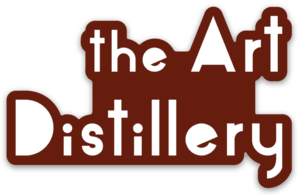
Perspective and Depth for Painters
Instructor: Mike Hernandez
Medium: Gouache, Acrylic or Oil
Dates: June 21–22, 2025 (Sat-Sun)
This 2-day ONLINE workshop will be from 1 pm to 7 pm EST with an hour break at 3 pm.
Skill Level: Appropriate for all levels
Fee: $275
Download Supply List <—
In this workshop, you’ll:
- Master the basics of perspective: Learn how to create depth using easy-to-follow methods for one-point, two-point, and three-point perspective—perfect for everyday scenes and compositions.
- Explore light and shadow: Discover how to use light and shadow to add volume and realism to your paintings, helping your subjects feel more lifelike without getting bogged down in theory. Learn to cheat the use of shadows for a stronger focal point and framing.
- Use color to build depth: Understand how simple color choices can help create the illusion of space, giving your paintings a natural, three-dimensional feel.
- Practice through exercises: Work on practical painting exercises that allow you to apply what you’ve learned, with plenty of personal guidance from Mike along the way.
- Receive individualized feedback: Get helpful, one-on-one support from Mike to refine your technique and make sure you feel confident with each new skill.
By the end of this workshop, you’ll feel empowered to use perspective and depth in your artwork, whether you’re painting landscapes, still life, or anything else. Mike’s approachable teaching style ensures that you’ll leave with a solid understanding of these techniques—without feeling overwhelmed by complicated rules.
 A native of Los Angeles, CA, Mike Hernandez is a plein air painter skilled in gouache, oil, and acrylic. His works have been featured in several online publications as well as galleries. His process began as a young child, painting still-life images. Influenced by the likes of Edgar Payne, Joquin Sorolla, and Franz Bischoff, Mike soon explored the foundations of color and light in the outdoors—striving to find the beauty in the ordinary. With a palette that resides at the crossroads between industrial and landscapes, he finds inspiration anywhere from the Eastern Sierra range to the muddy concrete banks of the Los Angeles River.
A native of Los Angeles, CA, Mike Hernandez is a plein air painter skilled in gouache, oil, and acrylic. His works have been featured in several online publications as well as galleries. His process began as a young child, painting still-life images. Influenced by the likes of Edgar Payne, Joquin Sorolla, and Franz Bischoff, Mike soon explored the foundations of color and light in the outdoors—striving to find the beauty in the ordinary. With a palette that resides at the crossroads between industrial and landscapes, he finds inspiration anywhere from the Eastern Sierra range to the muddy concrete banks of the Los Angeles River.
Mike studied at the Art Center College of Design in Pasadena, CA graduating with a B.A. in 1998. Mike was a Production Designer and Art Director as well as a concept artist at Dreamworks Animation and worked on such films as Shrek, How to Train Your Dragon, Turbo, Penguins of Madagascar, and many other films. Mike is also a member of a limited group of the finest painters in the US called PAPA (Plein Air Painters of America) as well as a nationwide sought-after workshop instructor.
A quote from Mike while talking to Eric Rhodes…
When you become a seasoned painter, the paintings that have more simplicity in them, and when they are distilled they tend to be the ones that we react to the most. You know, the distilled version. There’s a hierarchy to what’s most important to them. When they learn to distill, I feel that most people when they get into landscape is that they’re overwhelmed by too much information, and they don’t know where to start. You know, when it comes to the landscape, they’re thinking already of the details, and all the literal things that are bogging them down and then they become a prisoner to their subject. They’re blinded to all of the things that they’re holding on to too tight, like the things that we’ve come to—things like “never paint the things” just paint the broadness of form… paint the broadness and the simplicity of color, and then find an area where you maybe want to focus a little bit more attention, you know, when you’re painting. I’ll see beginning artists start off their painting and they’ll start imitating the texture of the tree or trying to paint every brick on the building. And I’m thinking, NO! Iit’s not necessary to have to be so… so tied to the detail, when in fact, less is always going to be more in a painting. The more you put into the painting, the less the viewer is going to see. I’ve had students who have a hard time understanding that.






